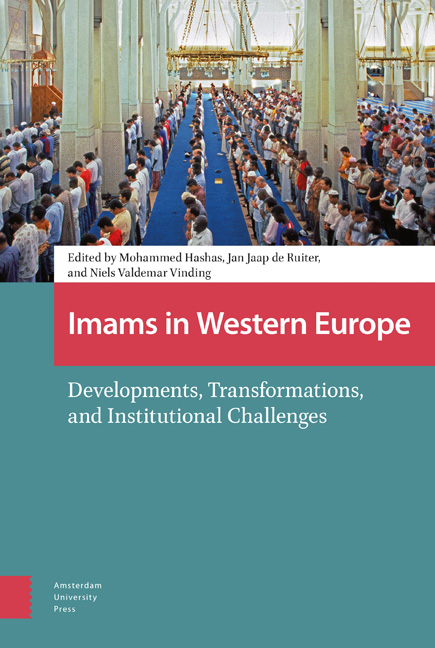20 - The Training of Imams in Italy: The Case of CO.RE.IS
Published online by Cambridge University Press: 06 January 2021
Summary
Abstract
There are over one and a half million Muslims residing in Italy. This diverse Muslim community faces many challenges, including a lack of official recognition by the Italian government. The Islamic association Comunità Religiosa Islamica Italiana (Italian Islamic Religious Community, CO.RE. IS) has undertaken the task of establishing institutions addressing the importance of religious tolerance. Through building mosques, developing curricula, and providing training for imams in Italy, CO.RE.IS seeks to promote a united and moderate representation of Italian Islam. This chapter centres on the role of the CO.RE.IS in offering both imam-training courses and general courses on Islam since 1995.
Keywords: Italian Islam, institution-building, Islam and democracy, mosques building
Islam and the State in Italy
Muslims in Italy are still waiting to receive the official government recognition that would give them the same status as the numerous other religions that have already signed agreements with the state. In the absence of an official body dedicated to these matters, the places of worship and ministers of the Islamic faith depend on initiatives undertaken by individuals or associations seeking to meet the religious needs of the about one and a half million Muslims in Italy. Flats, offices, cellars, and garages are often used as locations for the Friday prayers of Muslim communities, while volunteers – mainly immigrants from non-EU countries – and foreign imams sent by international Islamic organizations or the embassies of Muslim countries try to carry out the function of preacher and provide moral support to the community. The majority of Muslims in Italy are first-generation immigrants, mainly from Turkey, Albania, Morocco, and other parts of North Africa, but there are also growing numbers of Bangladeshi, Pakistani, and Senegalese Muslims who have had limited education or professional training, and who are often unfamiliar with the Italian legal system, culture, or language. For most of these immigrants, Islam is an expression of a natural sensibility and cultural heritage intertwined with memories of their youth in their home countries.
Given the growing presence of Muslims in the country, Italian state institutions have promoted some important initiatives in pursuit of a united and moderate representation of Italian Islam.
- Type
- Chapter
- Information
- Imams in Western EuropeDevelopments, Transformations, and Institutional Challenges, pp. 399 - 410Publisher: Amsterdam University PressPrint publication year: 2018



